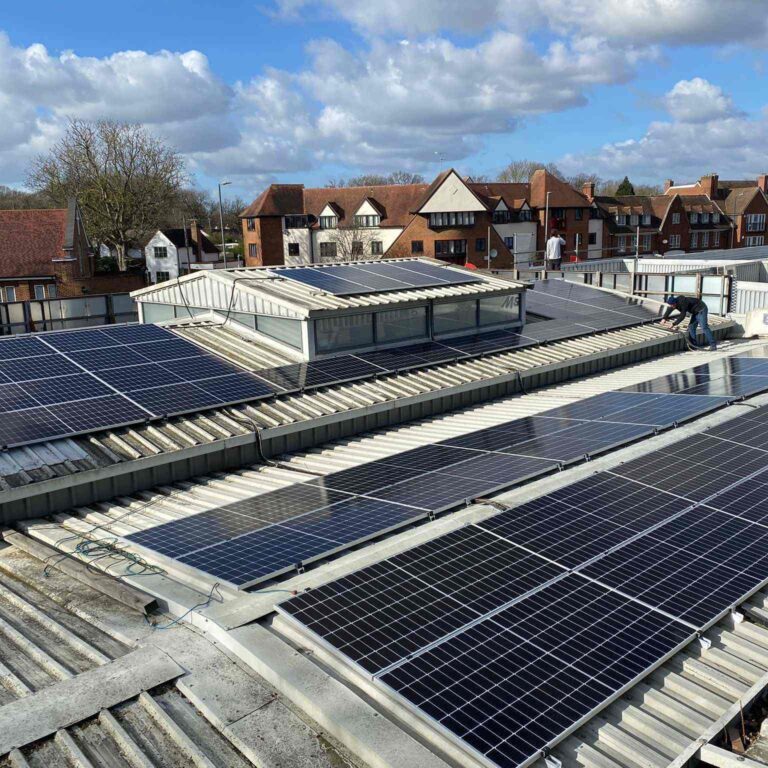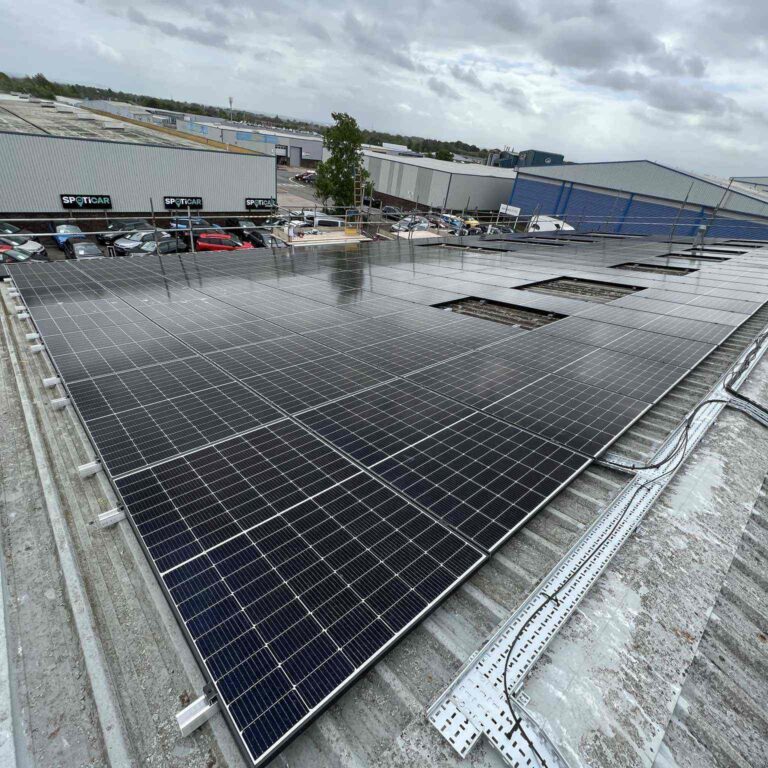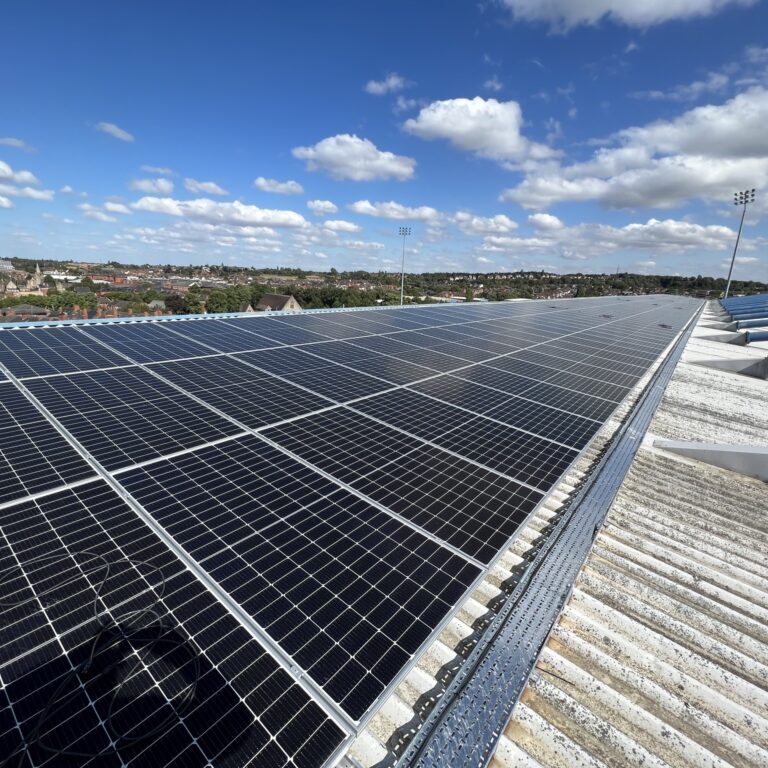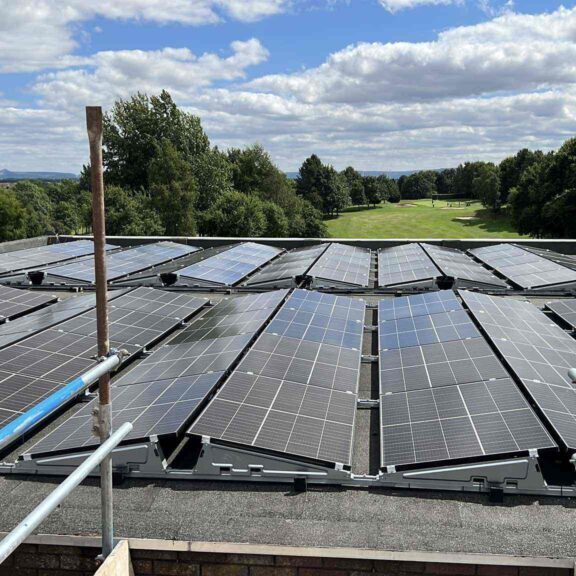Transitioning to commercial solar energy is a strategic move that can offer significant benefits for UK businesses, including reduced energy costs and enhanced sustainability. However, making the switch to commercial solar energy can be complex and requires careful planning to ensure a smooth transition. In this article, we will guide you through the essential steps to achieve a seamless transition to commercial solar energy, helping your business maximize the benefits of solar power while minimizing potential disruptions.
Understanding the Benefits of Commercial Solar Energy
Before embarking on your journey to commercial solar energy, it’s crucial to understand the benefits. Commercial solar energy systems can lead to substantial cost savings by reducing your reliance on grid power. Additionally, they enhance your business’s sustainability profile, helping to attract environmentally-conscious customers and meet corporate social responsibility (CSR) goals. Recognizing these benefits will help you justify the investment and plan the transition effectively.
Assess Your Energy Needs and Solar Potential
The first step in transitioning to commercial solar energy is to assess your current energy needs and evaluate the solar potential of your property. Conduct an energy audit to determine your average energy consumption and identify areas where solar power could be most effective. Additionally, assess the suitability of your property for solar panel installation by evaluating factors such as roof space, orientation, and shading. This assessment will provide a clear picture of how commercial solar energy can be integrated into your operations.
Research and Choose the Right Commercial Solar Provider
Selecting the right commercial solar provider is critical for a smooth transition to commercial solar energy. Research potential providers and evaluate their experience, certifications, and customer reviews. Look for providers with a strong track record in commercial solar energy installations and those who offer comprehensive services, including design, installation, and maintenance. Request quotes from multiple providers and compare their proposals to ensure you choose a provider that meets your needs and budget.
Secure Financing and Incentives
The financial aspect of transitioning to commercial solar energy is an important consideration. Explore various financing options available for solar installations, such as solar leases, power purchase agreements (PPAs), or solar loans. Additionally, investigate any available government incentives and tax credits that can reduce the upfront costs of your solar system. In the UK, the Smart Export Guarantee (SEG) offers payments for surplus solar energy exported to the grid, providing additional financial benefits. Securing financing and taking advantage of incentives will help make the transition to commercial solar energy more affordable and financially viable.
Plan the Installation Process
Once you’ve selected a commercial solar provider and secured financing, it’s time to plan the installation process. Work closely with your provider to develop a detailed project plan that outlines the installation timeline, key milestones, and any potential disruptions to your business operations. Communication is key during this phase to ensure that all parties are aligned and that the installation process proceeds smoothly. Schedule the installation at a time that minimizes impact on your daily operations and ensure that you have contingency plans in place to address any unexpected issues.
Monitor and Optimize Performance
After the installation of your commercial solar energy system, it’s important to monitor its performance to ensure it operates efficiently. Most solar systems come with monitoring tools that allow you to track energy production and identify any performance issues. Regular maintenance and prompt attention to any issues will help maximize the efficiency of your system and ensure that you continue to reap the benefits of commercial solar energy. Work with your provider to establish a maintenance schedule and address any performance concerns promptly.
Train Your Staff and Update Procedures
Transitioning to commercial solar energy may require updates to your business procedures and staff training. Educate your employees about the new solar system and its benefits, as well as any changes to energy management practices. Training your staff will help them understand how to operate the system and respond to any issues that may arise. Additionally, update your operational procedures to incorporate solar energy management and ensure that your team is equipped to handle the new system effectively.
Evaluate and Report on the Impact
To gauge the success of your transition to commercial solar energy, regularly evaluate and report on the impact of your solar system. Assess the cost savings achieved through reduced energy bills, monitor the environmental benefits such as reduced carbon emissions, and evaluate any improvements in your business’s sustainability profile. Reporting on these metrics will help you understand the return on investment and demonstrate the positive impact of your commercial solar energy system to stakeholders.
Stay Informed About Technological Advancements
The field of solar technology is continually evolving, with new advancements and innovations emerging regularly. Stay informed about the latest developments in solar technology and consider upgrading your system if new, more efficient technologies become available. Staying up-to-date with technological advancements will ensure that your commercial solar energy system remains at the forefront of efficiency and performance, maximizing the long-term benefits for your business.
Foster Positive Relationships with Stakeholders
Building and maintaining positive relationships with stakeholders, including customers, suppliers, and investors, is crucial during the transition to commercial solar energy. Communicate your commitment to sustainability and the benefits of solar energy to your stakeholders. Highlighting the environmental and financial advantages of your solar system can enhance your company’s reputation and strengthen relationships with those who value corporate responsibility and sustainability.
Conclusion
Transitioning to commercial solar energy offers numerous benefits, including reduced energy costs, enhanced sustainability, and improved property value. By following the key steps outlined in this article, you can ensure a smooth transition and maximize the advantages of your solar system. Assess your energy needs, choose the right provider, secure financing, plan the installation process, and monitor performance to achieve a successful transition to commercial solar energy. Embracing commercial solar energy not only contributes to a greener environment but also positions your business as a leader in sustainability and innovation.



